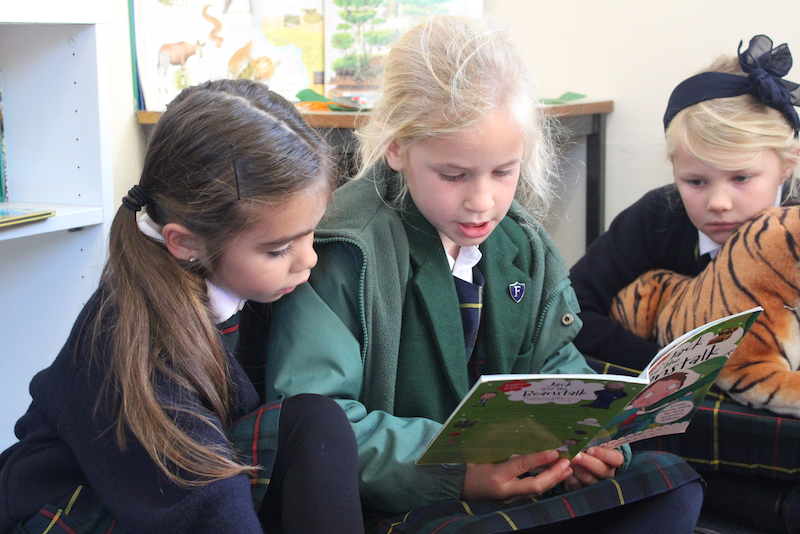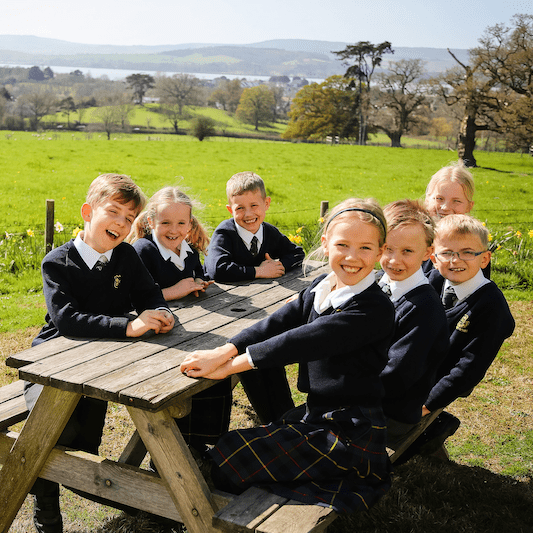Developing social skills is a crucial part of a child’s development, some will naturally take to socialising, whereas others may need a bit of prompting and assistance.
Supporting your child to cultivate their social skills is a big task. Our private school in Devon is devoted to supporting our students and their parents by publishing articles about key stages of a child’s development, such as the growth of their social skills.

What are Social Skills
Social skills are an umbrella term for various interactions. They involve verbal and non-verbal communications; including, but not limited to:
- Starting a conversation
- Talking effectively
- Listening
- Making friends
- Dealing with an uncomfortable situation
- Empathising
- Taking responsibility for their behaviour
These key skills will follow your child throughout their life and can easily lead to and support their future success.
How do Social Skills Support a Child’s Success
Social skills help to develop emotional intelligence, these are transferable skills that will support interactions such as effective communication, negotiation and the ability to work as a team.
Having a good grasp of social skills will help them to maintain positive interactions with others, as well as make and sustain friendships. Because of the nature of socialising, not all interaction will be positive, this is when strategies like conflict resolution come into play.

How Can I Help My Child Socialise?
Shyness is very common, naturally, most children will outgrow this once they are more comfortable within their own skin. However, there are things you can do to help build their self-esteem and encourage them to embrace and share their personality with others.
If their behaviour continues to get worse, or you start to notice that they are unable to socialise or make contact it may be a good idea to consult your GP.
Don’t Call Them Shy
It’s okay for your child to behave shyly and feel shy, but this isn’t a label you want to give then. The more you bring attention to their shyness and label it, the more they may internalise it as something wrong with them.
Schedule Regular, Fun Activities
For young children, activities such as singing songs and storytime may sound like bits of fun, but these are thoughtful activities that are critical for your child’s growth and performance.
When your child is exposed to an array of different activities, they will gain an understanding and ability to interact and act in different social situations.
Kids clubs, after school clubs and general activities will help them hone their social skills. They enable children to fine-tune their listening and social skills since they are frequently interacting with others.
Encourage Eye-Contact
Encourage your child to give regular eye-contact and talk effectively to build confidence.
For toddlers this will need to be practised every day, games such as staring contests, or incorporating eye-contact into storytime can be effective tools.
Allow for Open Communication
Verbal or non-verbal, children need to be able to express, interact and respond to stimulus; this enables your child to learn appropriate greetings and responses.
Naturally, it will entail some guidance from their parents for children to be able to communicate appropriately with others. Let them know that they are welcome to talk freely, ask questions and communicate with other people about their needs, beliefs and ideas.
You, the surrounding adults and others who will frequently be around your child should model behaviours and consistently use words such as ‘please’ and ‘thank you’ etc.
We hope this article has helped you while you support your child in socialising! Here at St Peter’s Prep, we provide a traditional and progressive educational experience where we help children to reach their full potential.
To discover more about our educational opportunities at St Peter’s Prep, please contact Rachel Elliott, Director of Admissions & Marketing, on 01395 280335 or email rachel.elliott@stpetersprepschool.co.uk








